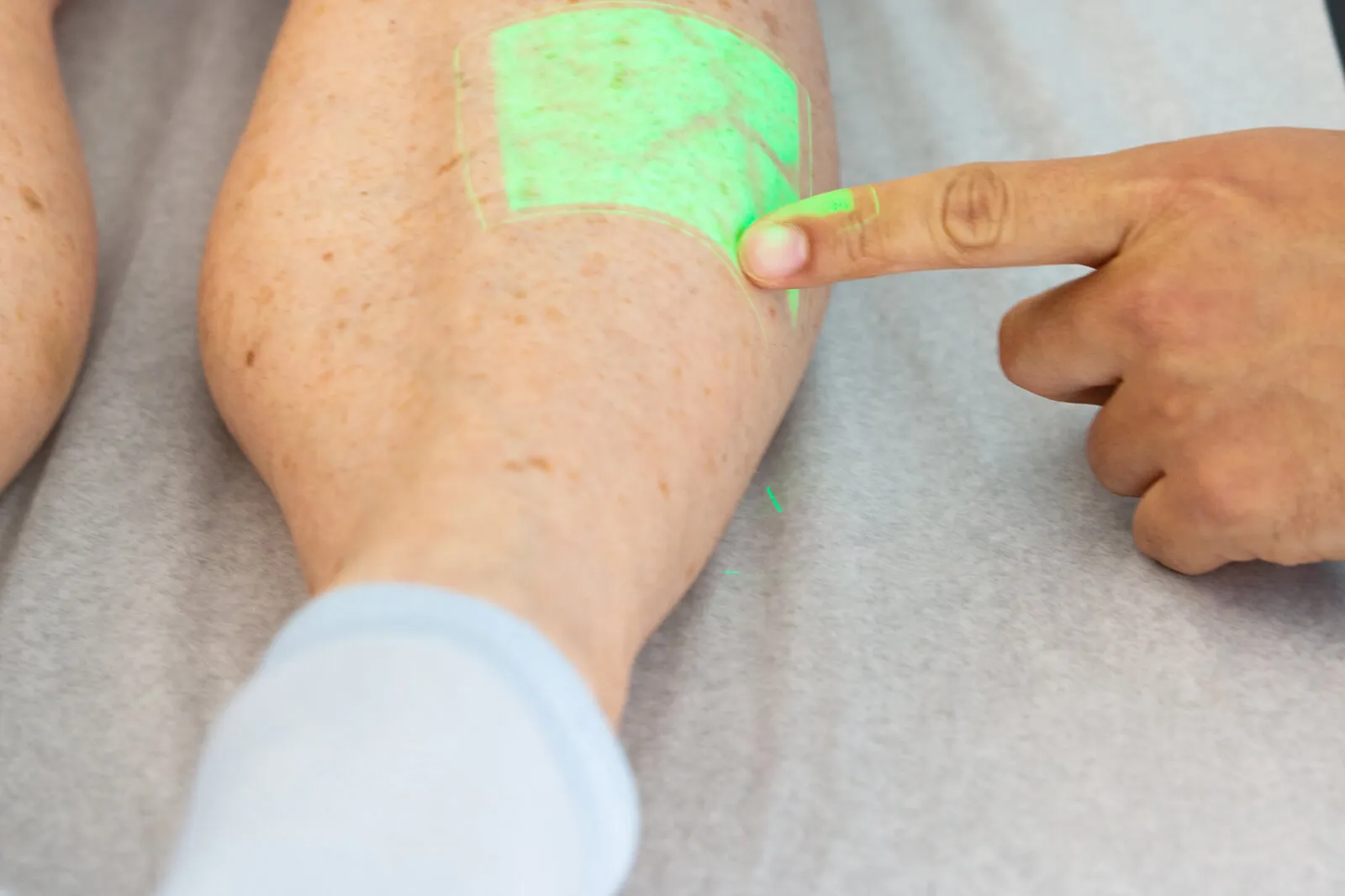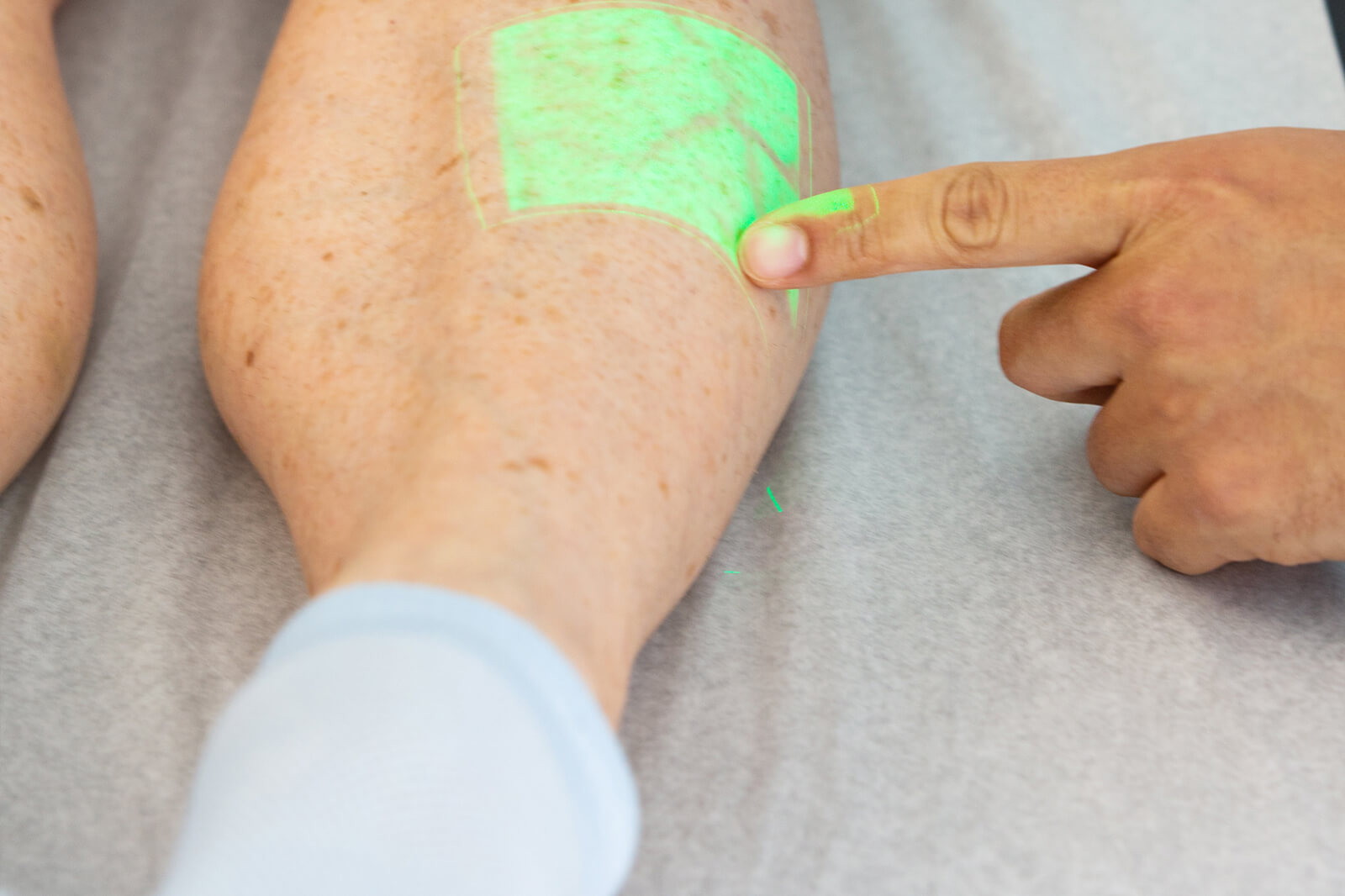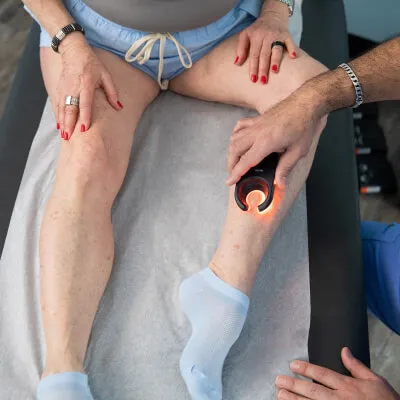Starting vein treatment is an important first step towards better leg health, but the journey doesn't end there. Monitoring your post-treatment recovery should also be a priority, so that you can enjoy the full benefits of your procedure(s). Recognizing the potential for complications after sclerotherapy, laser ablation issues, or other vein treatment issues early can make all the difference, allowing for timely intervention.
Key Takeaways
- Early detection is key to managing complications.
- Follow your post-treatment care guidelines.
- Communicate openly with your healthcare provider.
- Don't hesitate to seek medical help if you have concerns.
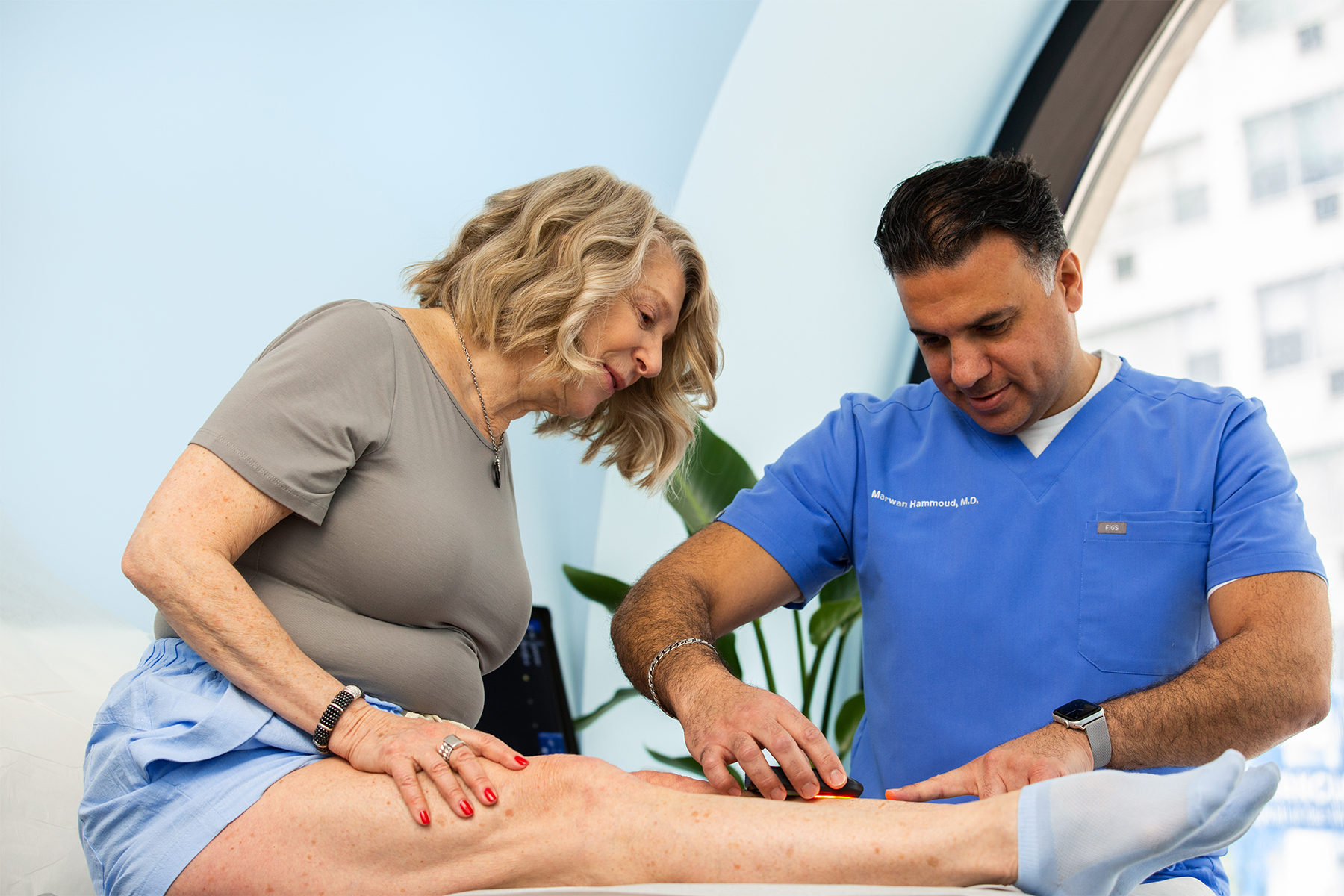
Common Post-Treatment Complications
While modern vein procedures are safer and more effective than ever before, some vein treatment complications can occur, leading to delayed healing. Here are a few potential issues to be aware of:
- Infection and Inflammation: Any vein procedure carries a risk of infection. Inflammation can also be a normal part of healing, but excessive inflammation can be a cause for concern.
- Bruising, Swelling, and Prolonged Pain: Some bruising and swelling can be expected after vein treatments. However, if these symptoms are severe or last longer than expected, it could indicate a complication.
- Deep Vein Thrombosis (DVT) and Post-Thrombotic Syndrome: Although rare, DVT (a blood clot in a deep vein) can occur post-treatment. Post-thrombotic syndrome can result from DVT, leading to long-term leg pain and swelling.
- Recurrence or Persistence of Varicose Veins: In some cases, treated veins may reappear, or new varicose veins may develop.
Post-Treatment Symptoms to Watch For
Being aware of the following red flags can help you identify potential vascular complications:
- Fever: This can be a sign of an infection.
- Increased Redness: While some redness is normal, spreading or intense redness is a sign to watch.
- Unusual or Worsening Pain: Pain that increases or doesn't subside with time may need medical attention.
- Changes in Swelling or Discoloration: Sudden increases in swelling or unusual skin discoloration should be checked.
- Other Signs of Infection: These include warmth, tenderness, and pus at the treatment site.
- Signs of a Blood Clot: These include sudden leg pain, swelling, and shortness of breath.
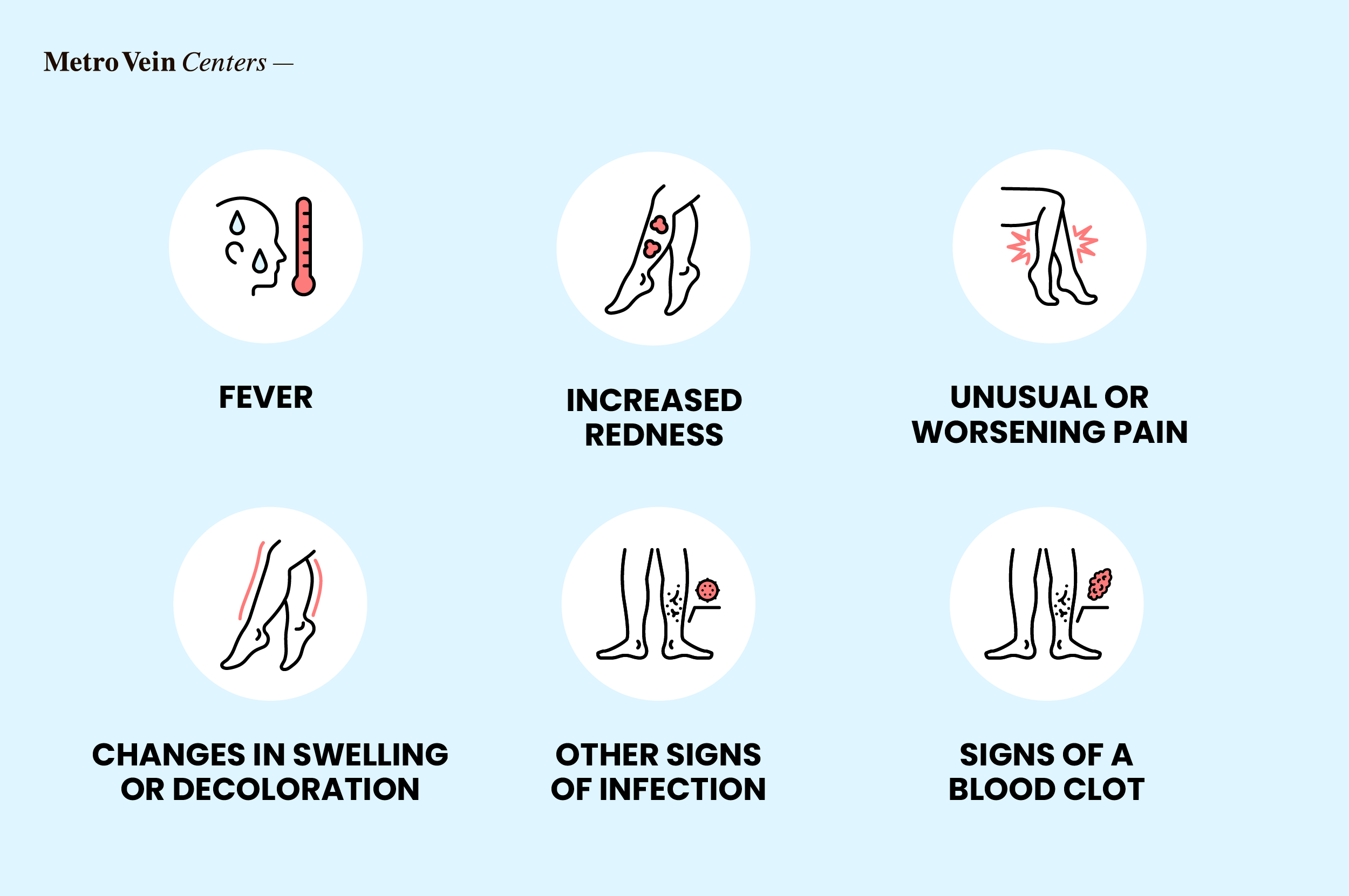
Diagnostic and Monitoring Techniques
Understanding the difference between normal post-op vein recovery and signs of complications is key. Your vein specialist will use several methods for monitoring recovery and check for unusual vein procedure side effects:
- Follow-Up Exams: Regular check-ups allow your doctor to assess your healing progress.
- Ultrasounds: These can check for blood clots and assess vein function.
- Blood Tests: These can detect infections or clotting abnormalities.
Prevention and Management Strategies
Following these patient recovery tips can help minimize the risk of post-treatment pain and complications:
- Following Post-Vein Treatment Care Guidelines: Adhere to your doctor's instructions, including wearing compression stockings, elevating your legs, and resting.
- Lifestyle Modifications: Maintain a healthy weight, stay active, and avoid prolonged sitting or standing.
- Medications: Use all prescribed medications as directed and check in with your doctor before taking any new medications or supplements.
Don't hesitate to contact your healthcare provider with any other concerns.

When to Seek Medical Help
You will want to contact your doctor immediately if you experience:
- Sudden or severe pain or swelling
- Signs of infection
- Chest pain or shortness of breath
- Sudden worsening of your condition
- Any other red flags that cause you concern
Communicating with your healthcare provider after treatment is essential to your health and well-being. Be prepared to describe your symptoms and any changes you've noticed.
Expert Vein Treatment Insights
At Metro Vein Centers, our doctors emphasize that vein treatment and care is a partnership. Our expert staff is here to support you from evaluation to recovery. Whenever you have questions or concerns, we'll be there for you every step of the way.
Worried about your vein health, treatment, or recovery? Contact our vein specialists today for a comprehensive evaluation and personalized care plan.
Conclusion
Staying vigilant during your post-treatment recovery is one very important way you can support a good result. By recognizing potential complications and following your healthcare provider's instructions, you can ensure a safe and smooth healing process.
Frequently Asked Questions
What are the most common complications after vein treatment?
Common post-treatment complications include infection, bruising, swelling, and DVT.
How can I tell if my recovery pain is normal or a sign of a complication?
Normal pain usually subsides with time and rest. Any worsening or persistent pain should be checked right away.
When should I contact my doctor about post-treatment symptoms?
Contact your doctor immediately if you experience severe pain, signs of infection, or chest pain.
What diagnostic tests are used to check for complications?
Some diagnostic tests your doctor may perform include ultrasounds, blood tests, and physical examinations.
How can I prevent complications during my recovery?
To maximize your chances of a smooth recovery, follow all post-treatment care guidelines, maintain a healthy lifestyle, and communicate regularly with your healthcare provider.

Dr. Katherine McGough
Meet Dr. Katherine McGough, DO, a highly-rated doctor specializing in the treatment of vein conditions. Schedule an appointment in Peoria, AZ today.
Meet Dr. Katherine McGough
Trusted insight from the nationally accredited, board-certified vein doctors at Metro Vein Centers.


